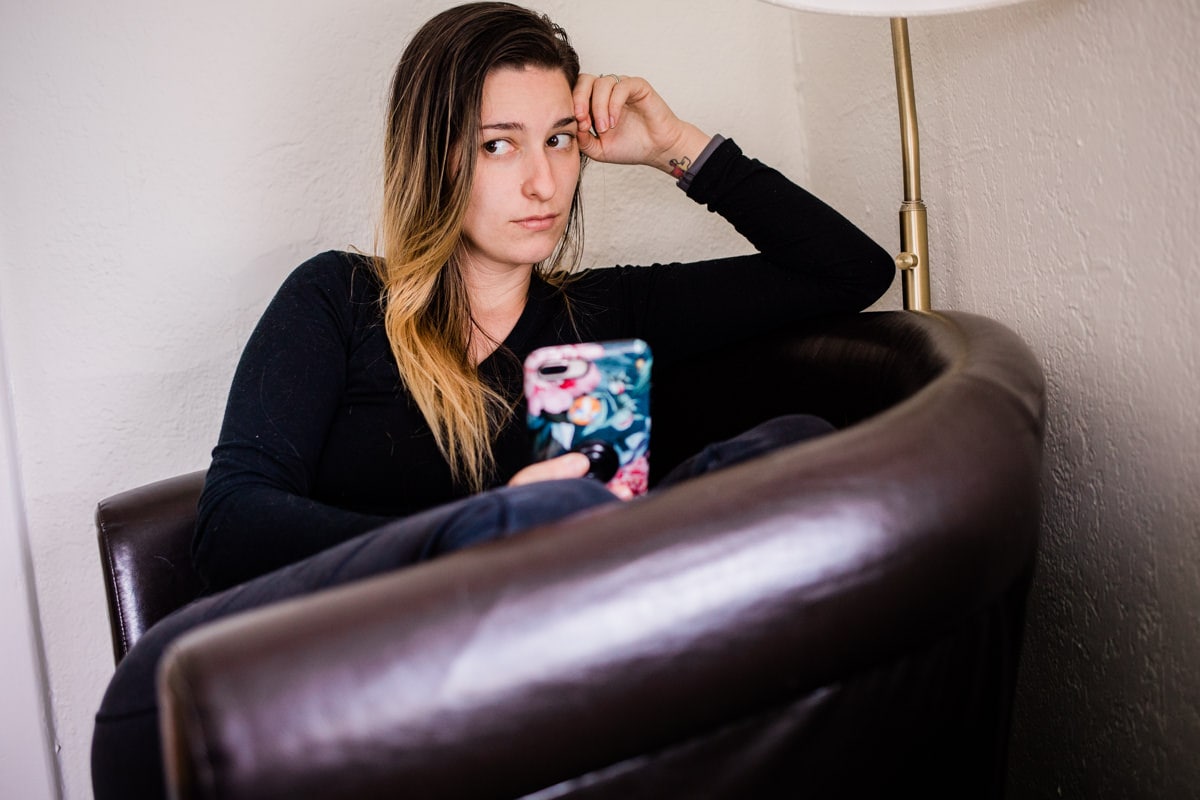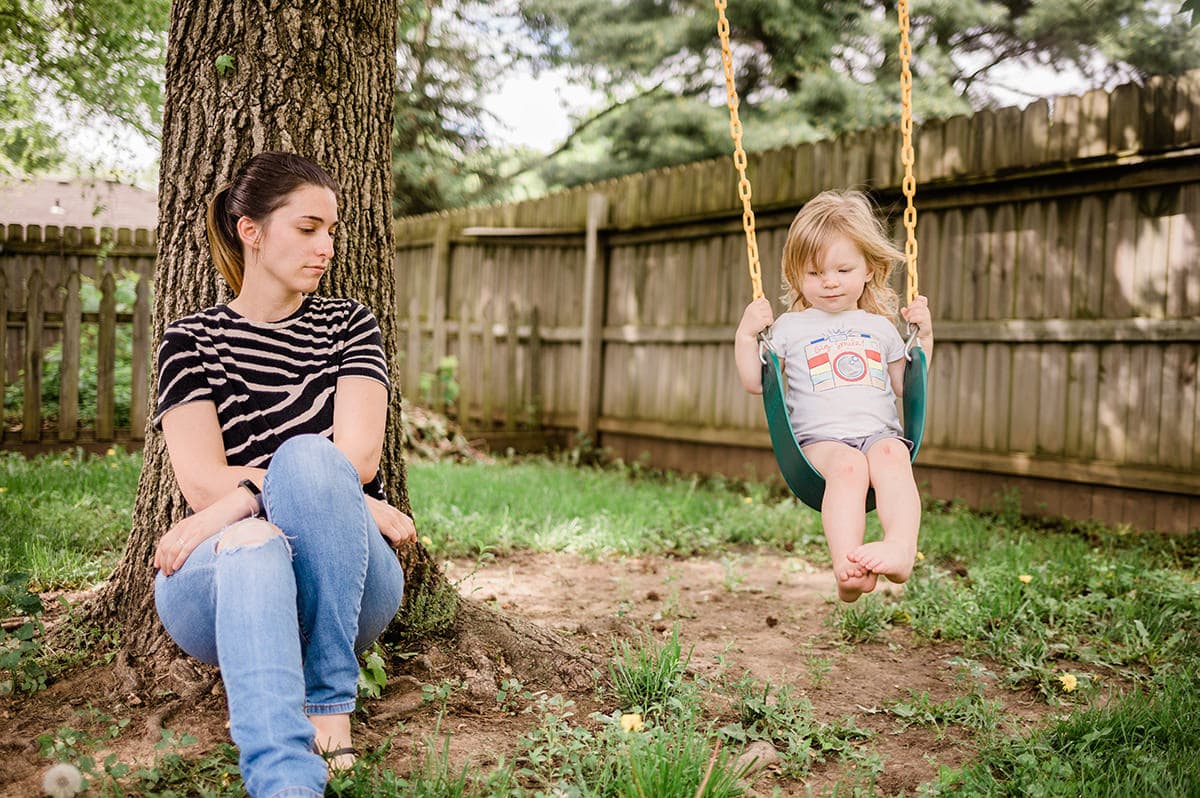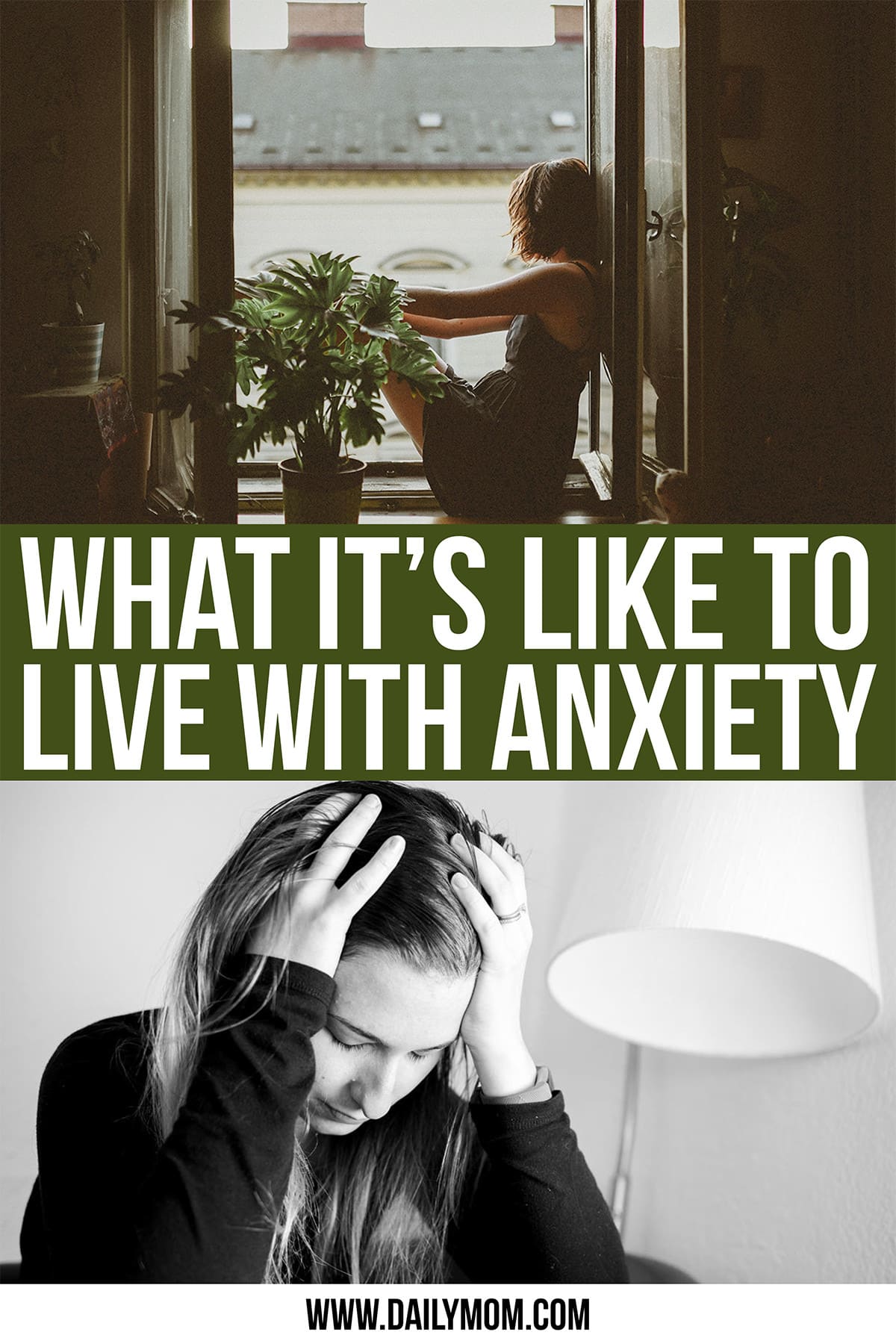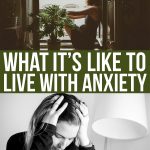Living with anxiety is something that a lot of people don’t like to talk about. It can be overwhelming to even think about simply talking to someone about what you’re feeling. There are so many different parts to living with anxiety, that you may think other people won’t understand or worse – that they’ll think differently about you when you mention it.
Having anxiety throughout your life is to be expected. If you’ve ever been nervous about a job interview or you’re not sure you passed an exam then you have experienced anxiety. But living with anxiety is quite a different matter and it doesn’t go away overnight.
If you’re living with anxiety and it’s not stemming from just one event, then you may have an anxiety disorder.
The National Institute of Mental Health says “People with a generalized anxiety disorder (GAD) display excessive anxiety or worry, most days for at least 6 months, about a number of things such as personal health, work, social interactions, and everyday routine life circumstances.” There are many types of anxiety disorders such as obsessive-compulsive disorder (O, post-traumatic stress disorder (PTSD), and phobias – each one of them can stem from a different source.
Read More: Anxiety Caused By The Coronavirus Outbreak
What does it feel like living with anxiety?
Picture this: You and your family have decided to order pizza for dinner. Your husband asks you to call and place the order, but you absolutely dread talking to people on the phone. You sit and look at the phone while your heart pounds and you start feeling warm all over. Your hands are sweating as you reach for your phone, but you just can’t do it. Finally, you beg your husband to make the call for you and you spend the rest of the night with a pit in your chest while replaying the scenario over and over again.
Simple tasks, like calling to place a take out order, are something that should not keep you awake at night. But when you’re living with anxiety, a lot of things become this difficult. You tend to overthink and become so fearful of doing a task wrong or starting something new, that it can begin to inhibit your quality of life – including your work and relationships.

What should you do if you’re living with anxiety?
The absolute first thing you should do if you feel that you may have an anxiety disorder is reaching out to your doctor. Getting to the root of the problem is the best thing to do, and your doctor can help you figure out different ideas on what it could be. For some people, an anxiety disorder is genetic. Your parents or grandparents may have struggled with living with anxiety, but never informed you. For others, it could be a hormone imbalance or a traumatic event that has stemmed the anxiety disorder. Getting to the root of the disorder can help you learn to navigate your everyday routine while living with anxiety.
Read More: Managing anxiety as a Mom
Living with anxiety is not easy. One of the hardest and scariest parts of living with anxiety is having panic attacks. This is something that people who have anxiety don’t like to talk about, as it’s something that makes you feel vulnerable and afraid. You may think that having anxiety or panic attacks is just a pounding heart and an uncontrollable sense of shaking, and you’re not wrong. Some panic attacks are just like that, but anxiety isn’t a set in stone disorder.
How do you know you’re having a panic attack?
Heart palpitations and trembling are signs of having a panic attack, but there are a multitude of other signs that we tend not to even think of. Feeling dizzy or numb along with having chills or heat sensations are also sure signs of having an anxiety or panic attack. The signs that you feel when you’re about to have a panic attack may not always be obvious to other people.
Some people choose to disassociate or distance themselves from the emotions that they’re feeling during a panic attack. With a million things rushing around in the midst of an attack, it’s hard to focus on a single thing, so you end up shutting down everything until you feel that you can function again. Disassociation is the exact opposite of what you should do if you’re living with anxiety, especially if you’re a parent. While disassociating from your emotions can work in the short term (like during a panic attack), it can actually damage the progress you’re making to cope with your anxiety.

When you feel that you are slipping into a panic attack, here are some healthy ways to ease your way back into life instead of disassociating:
- Check your pulse and focus on breathing until you slow it down.
- Count five things in the room that relate to one another (five red items, or five things you love, etc.)
- Keep lavender or peppermint on you to smell once you feel an attack coming on.
- Stop what you’re doing and walk around.
- Call a loved one and ask them to tell you a story.
Although some of these methods may sound silly, having sudden things to “anchor” yourself helps you focus less on the stressor.
Panic attacks are manageable, and your doctor may suggest putting you on an anti-anxiety medication to help prevent them from happening often. When you’re talking with your doctor about living with anxiety, make sure that you are informed about the other health risks that anxiety can affect. From high blood pressure to heart disease, anxiety can affect your health in so many ways.

Read more: 5 Tips for Dealing with Anxiety in Children
In addition to or instead of going on medication, there are so many ways to help you cope with living with anxiety. Here are a few things that you should focus and prioritize in your everyday life:
Getting to the root of the problem
Again, we talked about how disassociating or disconnecting from your anxiety is not healthy. When you’re feeling an overwhelming sense of emotions, try and pinpoint one exact emotion and talk through where it’s coming from. Often times, if you can pinpoint one emotion you can find the root of your current state of emotions and work forward from there.
Your diet
What you put in your body has a huge impact on how your body functions. Eating a ton of junk food can make you feel sluggish, and when you’re living with anxiety your body won’t process it as well. “People with anxiety might benefit from starting the day with rich sources of tryptophan, such as eggs, turkey, tofu, legumes, salmon, nuts, seeds, cheese, and milk.
These foods also help promote satiety and regulate blood glucose levels. Tania Mathewson, an accredited practicing dietitian, states “Including at least three servings of oily fish (salmon, sardines, tuna, trout, mackerel) a week will help to meet the recommended daily intake of 500mg of long-chain omega-3 fatty acid, so vital for brain health.”
Exercise
Not only can exercise improve your physical health, but exercising is proven to help people living with anxiety. The ADAA tells us “Scientists have found that regular participation in aerobic exercise has been shown to decrease overall levels of tension, elevate and stabilize mood, improve sleep, and improve self-esteem. About five minutes of aerobic exercise can begin to stimulate anti-anxiety effects.” If five minutes a day is all it takes to help those of us who are living with anxiety, then it should be a part of your daily routine. Going on a jog once a day or even spending a few minutes of light yoga stretching will benefit you so much in the long run.

Reassuring yourself and pushing your limits
Everyone needs to hear words of encouragement, especially from themselves – that’s why words of affirmation are so important. Make sure that you are reassuring yourself each step of the way, whether you’re getting nervous about a certain event or you’re prepping for the day. Pushing yourself to do little things like calling a friend or trying a new hobby can keep your mind focused and ease the overall feeling of anxiety.
While living with anxiety is extremely difficult, it is absolutely something you can manage. It takes a lot of hard work and dedication, but you’re not alone. In fact, anxiety disorders affect 40 million adults in the US population.
If you’re ever feeling alone or you feel that you can’t manage living with anxiety, make sure to reach out to a friend, health care professional, or call the National Alliance on Mental Illness (NAMI) Helpline: 1-800-950-NAMI (6264). Remember, you are not alone.
WANT TO READ MORE?
Did you know that separation anxiety is a disorder? If you feel that your child is experiencing it make sure to check out 5 Ways to Help your Child with Separation Anxiety.
💖 NEWSLETTER: DAILY READS IN YOUR INBOX 💖
Sign up to receive our picks for the best things to do, see and buy so you can relax and focus on more important tasks! Let us help you be the best version of yourself you can be!
GET MORE FROM DAILY MOM, PARENTS PORTAL
Newsletter: Daily Mom delivered to you
Facebook: @DailyMomOfficial
Instagram: @DailyMomOfficial | @DailyMomTravel | @BestProductsClub
YouTube: @DailyMomVideos
Pinterest: @DailyMomOfficial
📌 LOVE IT? PIN IT!📌

Photo Credits: Lauren Benson Photography | Kinga Cichewicz Unsplash | Andrew Tanglao
Sources: National Institute of Mental Health | Tania Mathewson | ADAA | National Alliance on Mental Illness (NAMI) Helpline










































